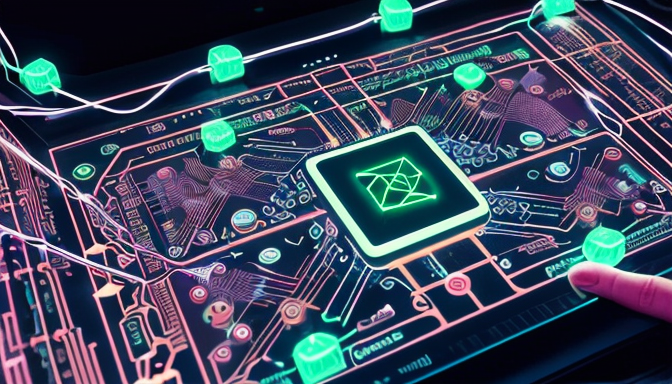The decentralized web is not just a buzzword; it’s a revolutionary shift in how we interact with the digital landscape. Imagine a world where your data isn’t controlled by a handful of tech giants, but rather, it’s in your hands. This new paradigm is built on technologies like blockchain, cryptocurrencies, and non-fungible tokens (NFTs), which are reshaping our online experiences. Why should you care? Because this evolution promises not only greater privacy but also enhanced security and user empowerment.
In the traditional web, your personal information is often a commodity, sold to advertisers and used without your consent. In contrast, the decentralized web allows you to control your own data, making it less vulnerable to breaches and misuse. Think of it as owning your own home instead of renting an apartment; you have the freedom to decorate, renovate, or even sell it as you please. With the rise of decentralized applications (dApps), users can engage directly with services without a middleman, paving the way for a more transparent and equitable digital economy.
However, it’s essential to recognize that this transition isn’t without its challenges. Questions around scalability, user adoption, and regulatory frameworks loom large. Addressing these hurdles is crucial for realizing the full potential of the decentralized web. So, are you ready to be part of this digital revolution? Understanding the implications of this shift can empower you to make informed choices in an increasingly interconnected world.
The Benefits of Decentralization
Decentralization is more than just a buzzword; it’s a revolutionary shift in how we perceive and interact with the digital world. Imagine a landscape where your data is not just a commodity for tech giants but a personal asset that you control. That’s the beauty of the decentralized web! By leveraging technologies like blockchain, cryptocurrencies, and NFTs, users can enjoy a range of benefits that traditional web structures simply can’t offer.
One of the most significant advantages of decentralization is enhanced privacy. In a world where data breaches are commonplace, having control over your own information is empowering. With decentralized platforms, you can choose what to share and with whom, significantly reducing the risk of unauthorized access. This level of privacy isn’t just comforting; it’s essential in today’s digital age.
Moreover, security is another critical benefit. Traditional systems are often vulnerable to attacks due to their centralized nature. Decentralized systems, on the other hand, distribute data across multiple nodes, making it exceedingly difficult for hackers to compromise the entire network. This architecture not only protects your data but also fosters trust among users.
Lastly, decentralization offers greater user control over data. Instead of relying on third-party services, individuals can interact directly with each other. This not only enhances transparency but also encourages innovation. For developers, this means creating applications that are more aligned with user needs rather than corporate interests.
In conclusion, the decentralized web is not just a trend; it’s a fundamental shift that promises to reshape our digital interactions. As we embrace this new paradigm, understanding its benefits is vital for making informed decisions about our online presence.

Challenges and Considerations
The decentralized web, while offering a revolutionary shift in how we interact online, is not without its hurdles. One of the most pressing challenges is scalability. As more users flock to decentralized platforms, the infrastructure must evolve quickly to handle increased demand. Think of it like a small coffee shop that suddenly becomes the hottest spot in town—without a bigger space and more baristas, the lines will grow long and customers will get frustrated.
Another significant hurdle is user adoption. Many people are still unfamiliar with concepts like blockchain, cryptocurrencies, and NFTs. Imagine trying to convince someone to switch from their trusty flip phone to a smartphone; it requires education, patience, and a clear demonstration of benefits. To truly harness the power of the decentralized web, we need to bridge this knowledge gap and make these technologies accessible to the average user.
Moreover, regulatory issues pose a considerable threat. Governments around the world are still figuring out how to handle decentralized technologies. Some fear that without regulation, the decentralized web could become a haven for illegal activities. This fear can stifle innovation. It’s like giving a teenager the keys to a sports car; without proper guidance, the potential for reckless behavior is high.
Ultimately, while the decentralized web promises a future of greater freedom and control, tackling these challenges is crucial for its success. Addressing scalability, promoting user education, and navigating regulatory landscapes will determine how swiftly we can transition to this new digital frontier.
Frequently Asked Questions
- What is the decentralized web?
The decentralized web, often referred to as Web 3.0, is an internet paradigm shift that aims to reduce reliance on centralized servers and services. It empowers users by giving them control over their data and online interactions, making the web more democratic and secure.
- How does decentralization enhance privacy?
Decentralization enhances privacy by distributing data across multiple nodes rather than storing it on a single server. This means that personal information is less vulnerable to hacking and misuse, as it’s not concentrated in one location.
- What are the main challenges facing the decentralized web?
Some key challenges include scalability, as decentralized networks can struggle to handle large volumes of data. User adoption is another hurdle, as many people are accustomed to traditional web models. Regulatory issues also pose significant obstacles, as governments grapple with how to manage decentralized technologies.
- How can I get involved with the decentralized web?
You can start by exploring decentralized applications (dApps), participating in blockchain communities, or even developing your own projects. The more you engage, the more you’ll understand the potential of this revolutionary web.